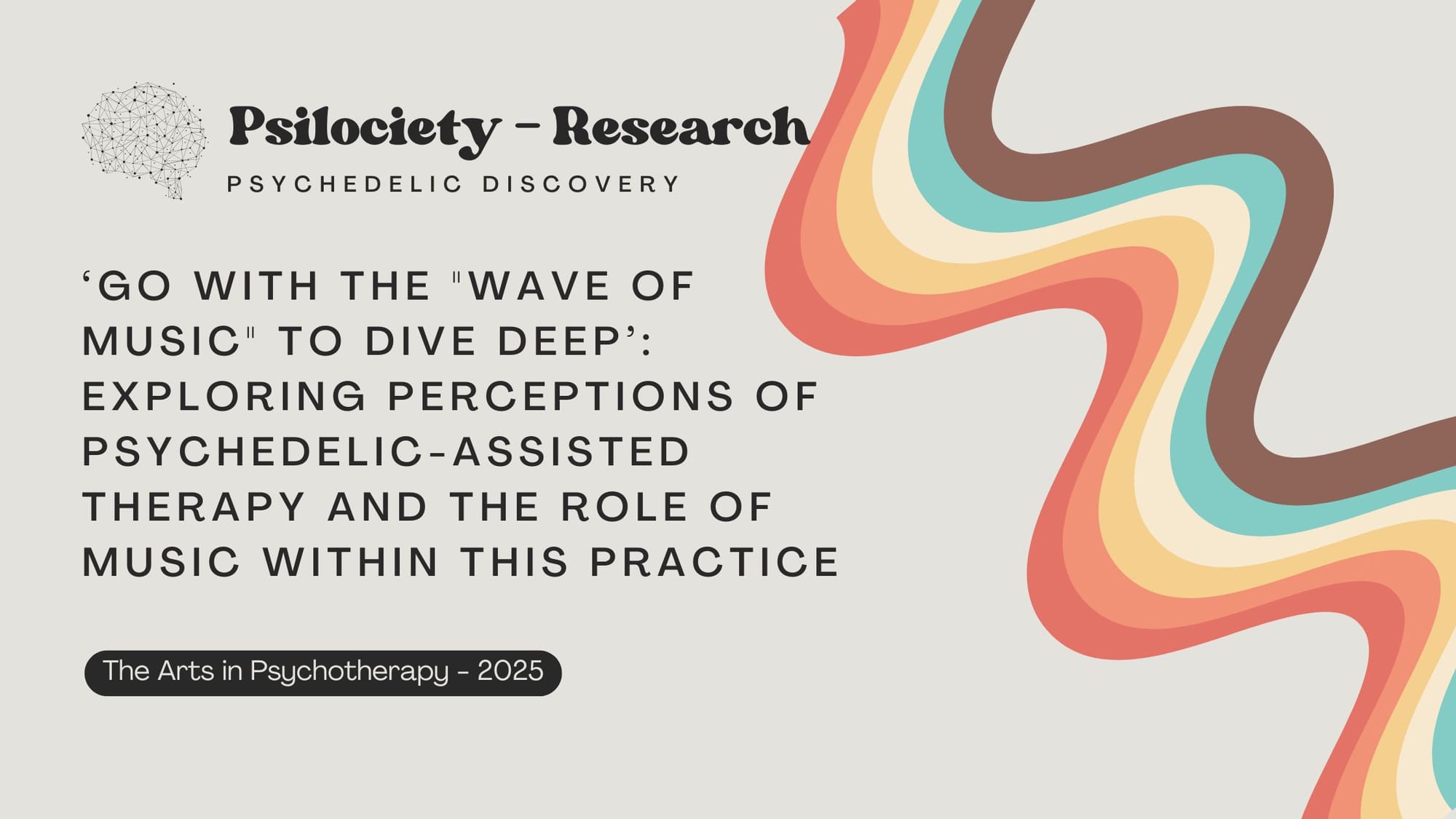‘Go with the "wave of music" to dive deep’: Exploring perceptions of psychedelic-assisted therapy and the role of music within this practice
This study explores how music shapes psychedelic-assisted therapy, serving as both a guide and container for emotional experiences.

Title & Introduction
- Paper Title: ‘Go with the "wave of music" to dive deep’: Exploring perceptions of psychedelic-assisted therapy and the role of music within this practice
- Published In: The Arts in Psychotherapy
- Publish date: March 4, 2025
- Authors: Ann MacLeod, Victoria Clarke, Catherine Warner
- Objective: To explore perceptions of psychedelic-assisted therapy (PT) and the role of music in guiding and shaping the therapeutic experience.
- Importance: While music has long been an integral part of psychedelic-assisted therapy, little research has examined how it is perceived within the therapeutic process. Understanding its role can inform best practices in clinical settings.
Summary & Takeaways
Key Takeaway: Music plays a significant role in psychedelic-assisted therapy, acting as both a guide and container for the experience. Participants perceived PT as a means to access deeper psychological and emotional states than conventional therapy, though concerns about potential risks were noted.
Practical Application: The findings support integrating carefully curated music into PT sessions to enhance emotional processing and containment. Further research is needed on personalized music selection and the role of live music.
Key Background Information
- Context: Psychedelic-assisted therapy (PT) is increasingly studied for its potential in treating mental health conditions. Music has been widely used in these sessions, but its perceived impact has not been systematically explored.
- Hypothesis: Music in PT is seen as integral to the therapeutic process, facilitating emotional engagement, introspection, and containment of the psychedelic experience.
Methodology
- Study Design: Qualitative study using a hybrid vignette-story completion method.
- Participants: 40 individuals, including mental health professionals, musicians, and those with personal experience in therapy.
- Intervention/Exposure: Participants were presented with a hypothetical PT session vignette and asked to complete the story.
- Controls: N/A (qualitative, exploratory study).
- Duration: Single-session responses collected via an online platform.
Key Findings
Primary Outcomes:
- PT was perceived as capable of accessing deeper psychological and emotional states than conventional therapy.
- Music was commonly viewed as a "co-therapist," guiding and containing the experience.
- The combination of music and psychedelics heightened emotional and sensory responses.
- Some participants expressed concerns about music overwhelming or misguiding the experience.
Secondary Outcomes:
- Two primary perspectives emerged:
- Music as an active force in evoking and supporting emotional exploration.
- Music as a passive background element providing relaxation and containment.
- Participants emphasized the importance of selecting appropriate music to match the psychedelic journey.
- Concerns were raised about PT not being a "magic bullet" and the need for structured integration support post-session.
Interpretation & Implications
- Conclusion: Music is perceived as a crucial element in PT, with both guiding and grounding effects. However, its role varies based on individual needs and therapeutic goals.
- Implications: Clinicians should tailor music choices to each client’s experience. Further research is needed on the potential for live music and client involvement in music selection.
- Limitations: The study relied on hypothetical scenarios rather than real PT experiences, and participants' views may be influenced by cultural narratives around psychedelics.
Researchers & Publication
- Researchers: Ann MacLeod, Victoria Clarke, Catherine Warner
- Publication Name: The Arts in Psychotherapy
- Study URL: https://doi.org/10.1016/j.aip.2025.102284

